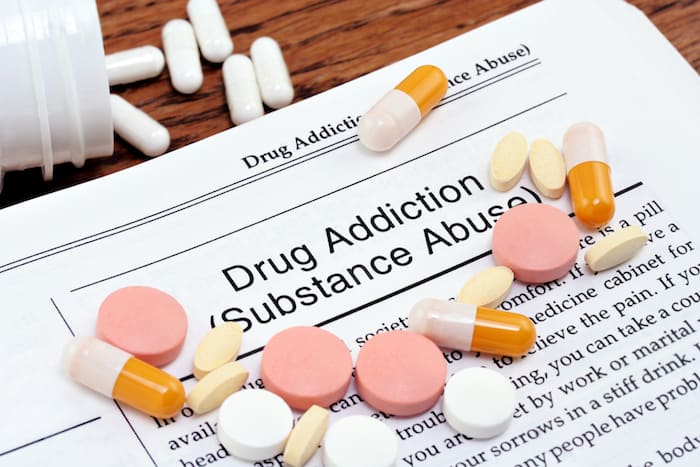
Detox is a critical part of the addiction recovery process. It helps clear toxins from the body of the patient as well as plays a crucial role in the management of withdrawal symptoms as one fights to overcome drug dependency.
This is especially important where the withdrawal process becomes life-threatening. A detox center provides a safe environment where experienced professionals can use various solutions to help you manage any side effects.
In this guide, you’ll learn why self-detoxification often fails, why medical detox is a much better option, and how to begin the journey toward medical detoxification.
Why Self-Detox Often Fails
Attempting self-detoxification is a heroic step when battling drug addiction. Anyone who manages to get started on this path deserves every bit of praise and support.
Unfortunately, DIY detox comes with several challenges. Merely tossing out the drugs and drug paraphernalia, cleaning out your home, and going cold-turkey is rarely sufficient.
Why? Because the side effects of withdrawal are extremely powerful. When the body is used to drugs, denying it those substances, and going one step further to rid your system of all traces of the drugs, can be painful, strenuous, and even life-threatening. From anxiety to confusion, insomnia, nightmares, hallucinations, and seizures, it can get real bad real quick.
What’s worse, even detox kits don’t work! Most of these kits, including at-home detox pills and drinks, only contain vitamin C, vinegar, niacin, goldenseal, lecithin, and several other herbs. There’s no medical evidence that any of these ingredients are helpful in drug detoxification.
What Makes Medical Detox a Better Strategy?
There are many reasons.
First off, prescription medications are a proven remedy for uncomfortable withdrawal symptoms. Among other things, prescription meds;
- Help stabilize the brain
- Reduce withdrawal symptoms
- Keep the patient safe
Additionally, medically-supervised detoxification may help uncover co-occurring and other medical conditions. Most people who abuse drugs, for instance, develop mental illnesses. Hepatitis and organ damage are also common co-occurring issues. Medical detox can help uncover such problems.
Above all, in a medical detox facility, you’re never alone. There are always teammates to talk to and professionals to provide support whenever you feel overwhelmed. Remember also that rehab facilities are safe, drug-free spaces. All these are important factors when working towards addiction recovery.

Getting Started with Medical Detox
The following section should help you evaluate your need for medical detox, understand the detox process, and find the right detox facility.
Who needs medical detox?
Anyone struggling with drug addiction. Whether it’s your first time seeking a solution to the addiction problems or even if you’re seeking alternative solutions after initial treatments, such as at-home kits, failed, joining a medical detox center can be of significant help.
What can you expect?
Medical detoxification process involves three main steps; evaluation, stabilization, and preparation for future treatment. Here’s what each stage entails;
1. Evaluation
During an evaluation, the patient fills a questionnaire, undergoes a physical exam, takes a few blood tests, and goes through a screening to establish the degree of their addiction, the extent of consequences, and the presence of co-occurring medical conditions. The information is then used to develop a treatment plan.
2. Stabilization
Stabilization is the actual treatment phase. Here, patients discontinue drug use, under close monitoring by experienced health professionals. The objective is to help the patient achieve sobriety and a medically stable condition. The duration of stabilization depends on the type and severity of the addiction.
3. Preparation
After detox, patients are usually referred to long-term therapy centers. The Preparation stage prepares them for additional, post-detox therapy programs, such as the 12-step rehabilitation and other long-term treatment programs.
How to find a medical detox center
First off, it’s important to know that not all detox centers are the same. Some are highly specialized, offering only solutions for specific addictions, such as alcohol. Others, meanwhile, deal in a wide range of addictions.
Additionally, some detox centers are gender-specific, i.e., male-only or female-only. Also, some only treat specific age groups. The first step is to find a center where you fit in.
In addition, consider the following factors;
- Inpatient vs. outpatient rehab
- The center’s success rate
- The center’s reputation
- Facility and staff accreditation
- Location
Other important considerations include insurance, referral services, whether family/friends can visit, and the quality of support.
Post Detox Treatment
As a parting shot, keep in mind that post-detox treatment is just as important as the detox process itself.
You can’t begin therapy until you’re gotten rid of the drugs in your system and achieved stability. But, you also can’t depend entirely on detox for long-term sobriety. It doesn’t work that way. Instead, after the detox, you need behavioral therapy, the help of support groups, and continuing therapy. That’s the only way to beat drug addiction long-term.
The Editorial Team at Healthcare Business Today is made up of skilled healthcare writers and experts, led by our managing editor, Daniel Casciato, who has over 25 years of experience in healthcare writing. Since 1998, we have produced compelling and informative content for numerous publications, establishing ourselves as a trusted resource for health and wellness information. We offer readers access to fresh health, medicine, science, and technology developments and the latest in patient news, emphasizing how these developments affect our lives.







